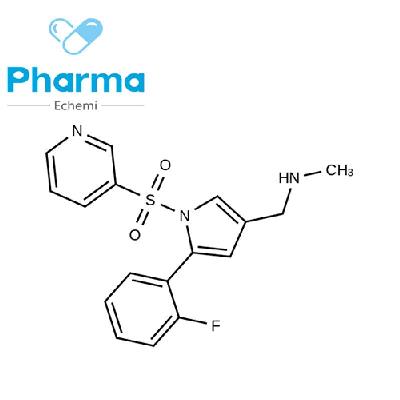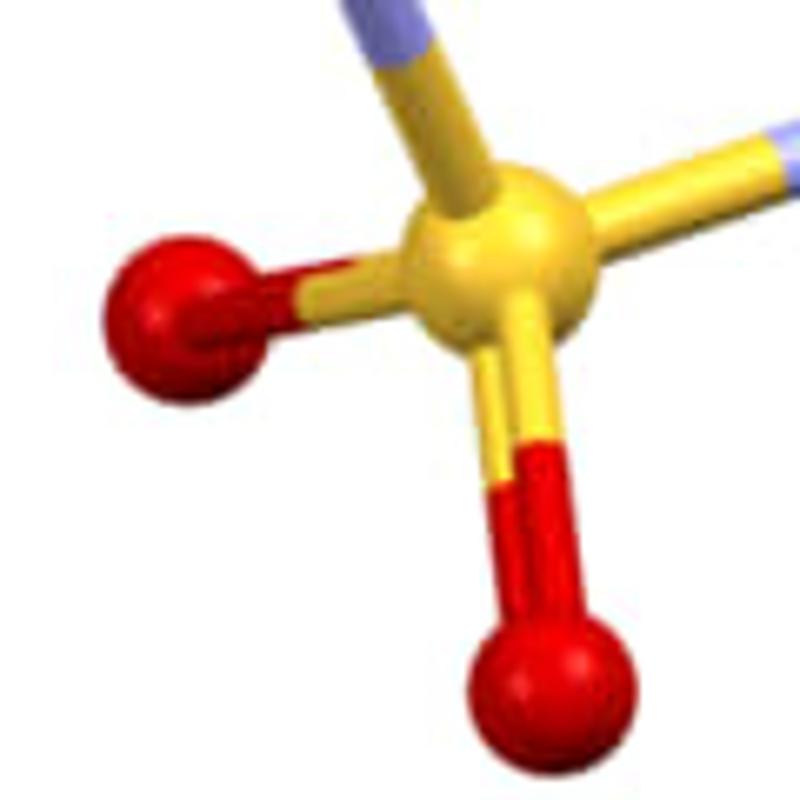-
Categories
-
Pharmaceutical Intermediates
-
Active Pharmaceutical Ingredients
-
Food Additives
- Industrial Coatings
- Agrochemicals
- Dyes and Pigments
- Surfactant
- Flavors and Fragrances
- Chemical Reagents
- Catalyst and Auxiliary
- Natural Products
- Inorganic Chemistry
-
Organic Chemistry
-
Biochemical Engineering
- Analytical Chemistry
-
Cosmetic Ingredient
- Water Treatment Chemical
-
Pharmaceutical Intermediates
Promotion
ECHEMI Mall
Wholesale
Weekly Price
Exhibition
News
-
Trade Service
The 25th National Congress of Clinical Oncology and the 2022 CSCO Annual Conference were held
from November 5th to 12th.
The theme of this conference is "Precision Innovation, Intelligent Humanities", the conference focuses on the clinical frontier of oncology, joins hands with experts and scholars in the field of oncology across the country, shares clinical research and innovation results, and strives to comprehensively and accurately reflect new concepts and new trends
in the field of clinical oncology.
During the conference, Yimaitong was honored to invite Professor Shen Lin from Peking University Cancer Hospital to share the research progress of gastric cancer treatment and look forward to the future treatment development direction
of gastric cancer.
Professor Shen Lin
Vice President of Peking University Cancer Hospital
Deputy Director of Beijing Institute of Cancer Prevention and Treatment
2019 Beijing Scholar
Chairman-elect of the Precision Cancer Treatment Professional Committee of the Chinese Anti-Cancer Association
The first chairman of the Clinical Research Committee of Cancer Drugs of the Chinese Anti-Cancer Association
Chairman of the Clinical Research Expert Committee of the Chinese Society of Clinical Oncology
Secretary General of Gastric Cancer Professional Committee of Chinese Anti-Cancer Association
Vice Chairman of the Colorectal Cancer Professional Committee of the Chinese Anti-Cancer Association
Rotating Chairman of the Board of Directors of Beijing Cancer Prevention and Control Society
As one of the leaders of your exploratory analysis of the RAINBOW-Asia trial, can you share the design concept of the study?
Gastric cancer is a highly heterogeneous and complex disease, and the research progress related to the second-line treatment of gastric cancer is also relatively slow, and many second-line treatment studies in the past have failed
.
Prior to the RAINBOW study, taxan-based chemotherapy had been the basis for
second-line treatment of gastric cancer.
Compared with the wide application of targeted therapy and immunotherapy in other cancers, the status quo of second-line treatment of gastric cancer is undoubtedly unsatisfactory
.
The RAINBOW study broke this deadlock, and remoximab brought significant clinical benefits to patients, so the study gained the attention of the global medical community, and several countries and regions have also approved this regimen for gastric cancer indications
.
BECAUSE CHINA FAILED TO JOIN THE RAINBOW STUDY AT THAT TIME, THE INDICATION WAS NOT APPROVED
IN CHINA AT THAT TIME.
Based on this background, we designed the bridging trial RAINBOW-Asia study, called the bridging trial, which actually has a sample size of nearly 400 cases that is almost the same as
other randomized controlled studies.
In addition, the RAINBOW-Asia study added the primary endpoint of progression-free survival (PFS) to the RAINBOW study with overall survival (OS) as the primary endpoint, assessing both the patient's short-term disease and the patient's long-term survival, which also highlights the rigor of the
study design.
THE RESULTS WERE ENCOURAGING, WITH MEDIAN PFS OF 4.
17 MONTHS AND 3.
15 MONTHS AND MEDIAN OS OF 9.
03 MONTHS AND 8.
08 MONTHS IN THE EXPERIMENTAL AND CONTROL GROUPS, RESPECTIVELY, WHICH IS CONSISTENT
WITH THE OVERALL RESULTS OF THE RAINBOW STUDY.
Based on the RAINBOW-Asia study, China officially approved the indications of ramoximab for the second-line treatment of gastric cancer, and the 2022 version of the CSCO gastric cancer guidelines also took the paclitaxel + ramoximab regimen as the second-line recommended regimen
for gastric cancer patients.
The success of the RAINBOW-Asia study has given gastric cancer patients a new second-line treatment option, which is a blessing for
gastric cancer patients.
In addition, in the past, our understanding of antiangiogenic therapy was limited to blocking the blood supply to the tumor and thereby inhibiting tumor growth, but now from the perspective of immunotherapy, another major role of antiangiogenic therapy is immunomodulation
.
At present, we have found that the second-line benefit of paclitaxel + ramoximab is more significant
for gastric cancer patients who have used immune checkpoint inhibitors in first-line therapy.
Therefore, ramoximumab, as an anti-angiogenic drug, can play a synergistic anti-cancer effect with immunotherapy, which is also a promotion for
the development of immunotherapy.
So, although we lagged behind our international counterparts in conducting the RAINBOW-Asia study, we also gained updated data and more insights that will be useful for advancing clinical practice and improving the treatment of gastric cancer in the future
.
To evaluate the quality of a study, we can't just look at the time of the study, as long as it is beneficial to patients, I think it is a successful clinical study
.
Advanced gastric cancer has made breakthroughs in ADC drugs and immunotherapy in recent years, what enlightenment do you think these advances can bring to the clinical treatment of patients with advanced gastric cancer?
In recent years, the research in the field of gastric cancer has made great progress, and it has also brought significant benefits
to clinical patients.
For example, ADC drugs, we look back at the past, for HER2+ gastric cancer patients, since the approval of trastuzumab, T-DM1 and other related clinical explorations have encountered one failure
after another.
At present, T-DXd and China's vedicitumab have shown clear benefits in the third-line treatment of HER2+ gastric cancer patients, and the best treatment strategy
can be selected according to the patient's own situation.
Taking vedicitumab as an example, I led a phase II study to evaluate the efficacy of vedicitumab, and before the study began, we conducted preliminary exploration in an animal model of PDX to provide a decision-making basis
for subsequent research.
Through preclinical trials, we have found that not only gastric cancer patients with high HER2 expression can benefit from vedicitumab, but also some people with intermediate expression or even low expression, which provides a boost for the expansion of the scope of precision treatment of gastric cancer, and may also enable more patients to obtain better treatment
in the future.
Of course, this progress is also inseparable from the support of drug developers and other relevant personnel, who worked together with our clinicians to achieve the first breakthrough
of ADC drugs in the field of gastric cancer in China.
The same is true for immunotherapy, which is different from "hot tumors" such as lung cancer where immune cells are enriched, and stomach cancer is a "cold tumor"
that is less sensitive to immunotherapy.
Therefore, the initial development of studies such as CheckMate-649 was extremely cautious, and the CheckMate-649 study became the largest gastric cancer clinical trial
ever conducted in the world.
On the basis of the previous development, more and more subsequent studies have proved the efficacy of immune checkpoint inhibitors in gastric cancer, but in addition to the excitement, when we review the results of the study, we will find that the degree of benefit of patients does not seem to be as much as we expected, which suggests that we need to implement more accurate immunotherapy
.
At present, the exploration of precision immunotherapy is still in depth, and HER2+ is one of the more prominent markers
.
The KETNOTE-811 study showed that patients with HER2+ gastric cancer who received pembrolizumab + trastuzumab + chemotherapy as first-line therapy achieved an objective response rate (ORR)
of 74.
4%.
Some of our domestic studies exploring chemotherapy strategies also suggest that the effectiveness rate of double-free combination therapy can reach more than 70%, which is an exciting achievement, and this achievement is based on our in-depth understanding of gastric cancer and the precision treatment
based on it.
To sum up, I think there are three points of enlightenment
.
First of all, failure in the process of scientific research is not terrible, preclinical exploration can provide important support for subsequent decision-making and improve the success rate of research; Secondly, the success of a drug is inseparable from the joint efforts of clinicians and drug developers; In addition, precision treatment is our future direction and an important foundation for
maximizing patient benefits.
In the application of immunotherapy, accurate screening of patients and accurate prediction of efficacy are important links, in addition to conventional efficacy prediction markers such as PD-L1, what other directions do you think we can explore?
First of all, in gastric cancer, as an immunotherapy-related biomarker, the role of PD-L1 score cannot be completely denied
.
PD-L1 combined with positive score (CPS) has a certain correlation with the efficacy of immunotherapy, and the benefit of immunotherapy is indeed more significant
as the CPS score increases.
However, the PD-L1 score is not a perfect indicator of "all or nothing" in clinical immunotherapy, and even patients with PD-L1 CPS<1 are not completely unable to benefit<b12> from immunotherapy.
Therefore, we need more guidance on markers
.
These include microsatellite stability, EBV-related indicators, POLE/POLD1 and tumor mutation burden (TMB) and other indicators, with the deepening of research, we gradually realize that the benefit evaluation of immunotherapy may not only refer to a single index, but should take into account the biological characteristics of the tumor and the microenvironment of the tumor, and comprehensively evaluate it from multiple perspectives
.
Our team is currently exploring related models, analyzing tumor proteomics, genomics and spatial omics with artificial intelligence, and inducing the best strategies
for predicting the efficacy of immunotherapy through the analysis of tumor multidimensional structure.
The treatment of gastric cancer has entered the era of "a hundred flowers", and the success of a variety of treatment strategies has provided patients with new treatment options
.
What do you think of this trend? What kind of development prospects will immunotherapy usher in?
In the field of gastric cancer, there are now multiple treatment strategies that deserve our attention
.
Taking cell therapy as an example, CAR-T therapy targeting claudin 18.
2 can bring 57.
1% ORR benefit to third-line patients with gastric cancer, which is an amazing breakthrough compared with the efficacy rate of about 10% compared with previous therapies
.
Of course, whether it is cell therapy or ADC therapy, there are still shortcomings, and the precision treatment application of immunotherapy needs to be further improved
.
This status quo is the motivation to motivate our clinicians to explore research, immunotherapy must be an important direction for future tumor treatment, in the past gastric cancer immunotherapy progress is slow, now whether it can be done later, we can wait and see
.
Editor: Traveler
Reviewer: Professor Shen Lin
Typesetting: Wanderer
Execution: Traveler
This platform is designed to deliver more medical information
to healthcare professionals.
The content published on this platform cannot replace professional medical guidance in any way, nor should it be regarded as diagnosis and treatment advice
.
If such information is used for purposes other than understanding medical information, this platform does not assume relevant responsibilities
.
The content published by this platform does not mean that it agrees with its description and views
.
If copyright issues are involved, please contact us and we will deal with
it as soon as possible.







